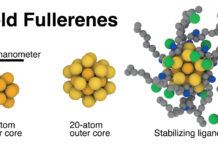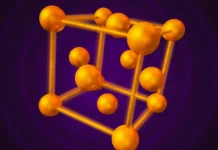It does not pollute the seas and is suitable for use as packaging

New Water-Soluble Plastic Material Based on Potato Starch: The University of Alicante Waste, Energy, Environment and Nanotechnology (REMAN) research group has developed a process for obtaining a water-soluble plastic material based on potato starch, which will soon be introduced on the market through the UA technology-Based Company Solublion, linked to the Alicante Science Park. According to professor of Chemical Engineering Ignacio Martín Gullón, this new material is also compostable and biodegradable, being suitable for use as a flexible film, preferably in bags and packaging, and has great advantages over existing ones.
The development of this new material arose from a thesis on thermoplastic starch for the development of environmentally sustainable materials by now president and CEO of Solublion Daniel Domene López. The thesis’ title reveals the intention that this new material will make a relevant contribution to mitigating the impact caused by the poor management of conventional plastic waste as it does not generate an environmental problem at the end of its useful life in the event that, due to poor waste management, it ends up in natural ecosystems. Domene López explained that the consumption of worldwide plastic materials before the pandemic was around 370 million tonnes, a figure that they estimate could exceed 400 million in the coming years due to the increase in packaging and single-use materials. Of these, before the pandemic, only two million were biodegradable plastics, and by the end of the decade there will be an estimation of eight million tonnes of biodegradable plastics in demand by consumers.
The plastic developed by the REMAN group is highly stable and has a low migration rate. As explained by Ignacio Martín, this group’s solutions are intended for use in the packaging and single-use plastics industry as a direct replacement for conventional alternatives. In addition, their patented technology allows them to offer a wide range of mechanical performance, enabling them to tailor our products to the needs of their customers.
The formulations developed by the research group require the starch to be gelatinised and plasticised in the presence of plasticisers, usually water and another plasticiser with a higher boiling point. Plasticised starch, surrounded by plasticiser molecules, has a high tendency to retrograde, i.e. it partially recovers its original ordered structure, which leads to a decrease in its properties. However, with the technology developed by the group, this migration is largely avoided, extending the useful life of these materials without detriment to their mechanical properties, biodegradability, compostability and water solubility.
New Water-Soluble Plastic Material Based on Potato Starch: Original Article
New Packaging could Lower Plastic Industry’s Carbon Footprint
Crab shells and trees could replace flexible plastic packaging










